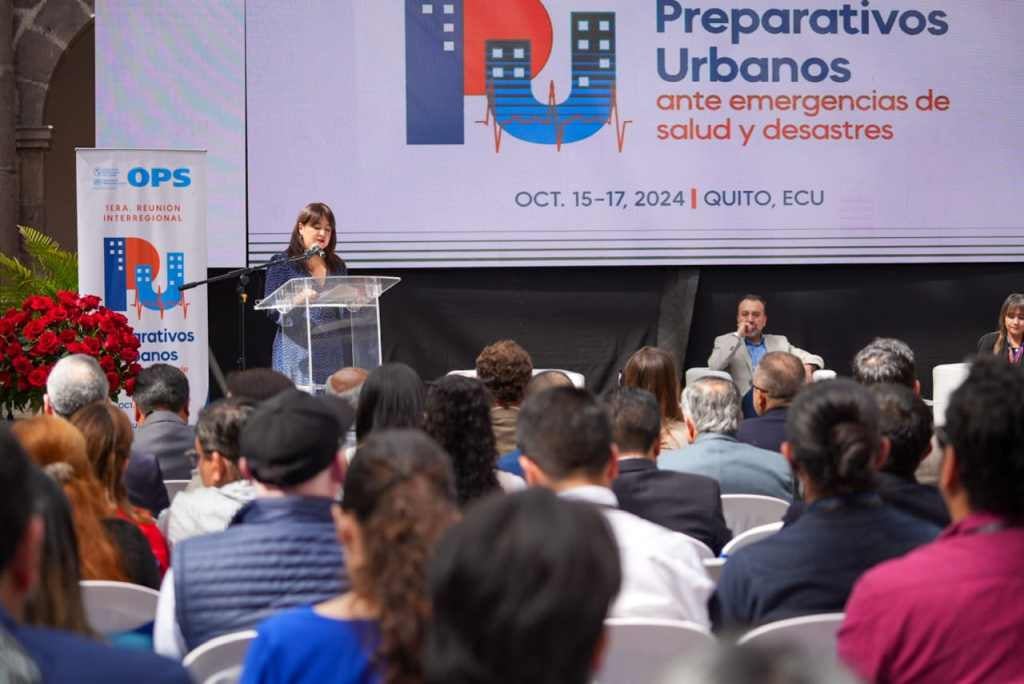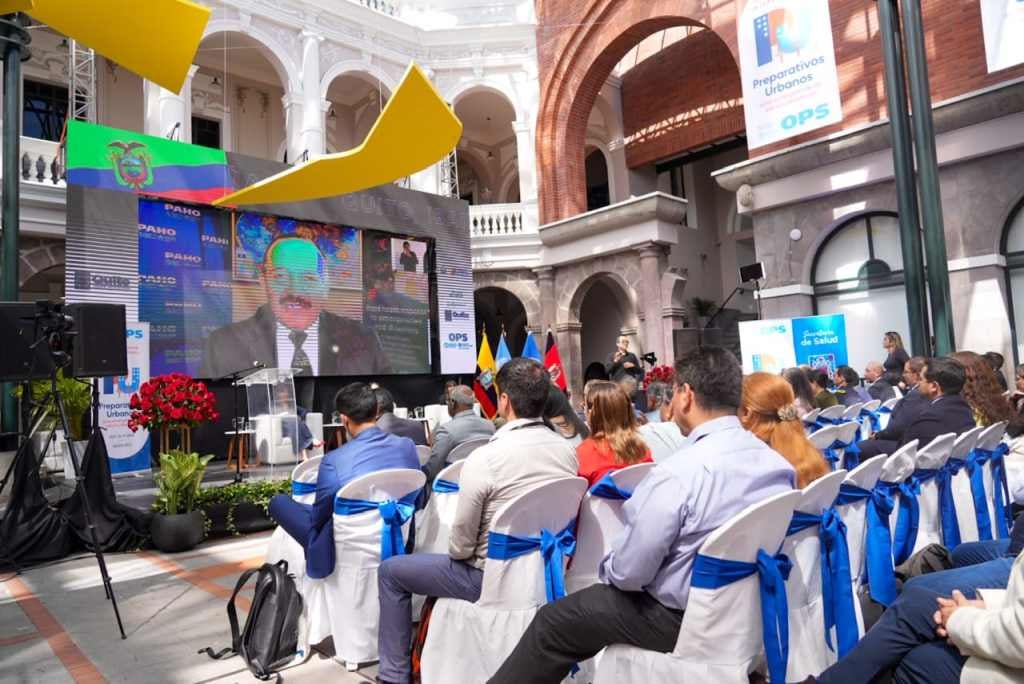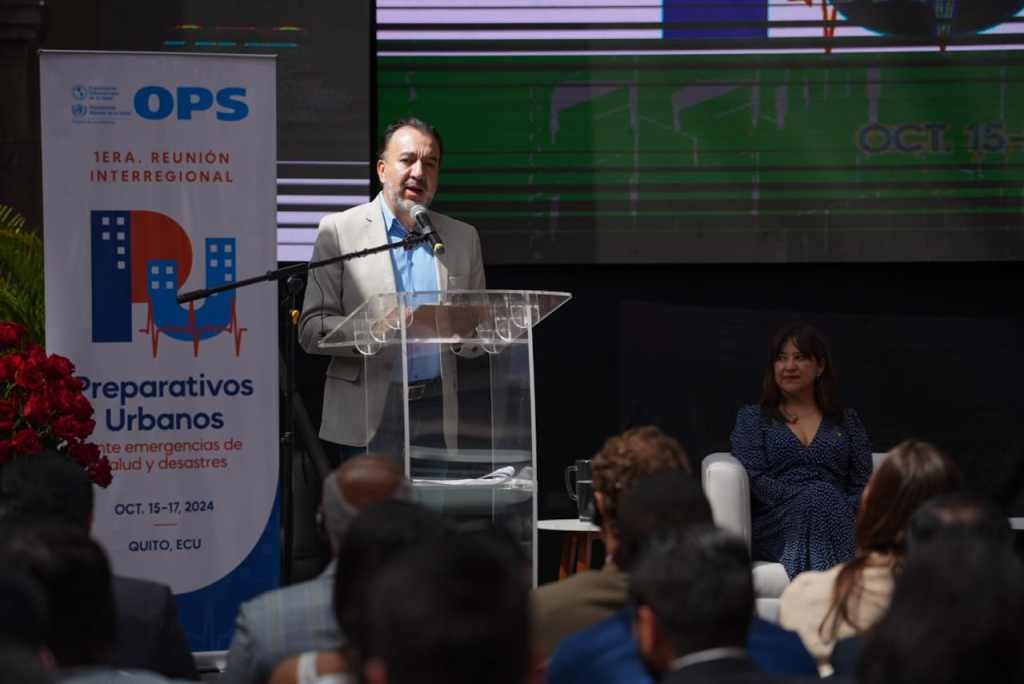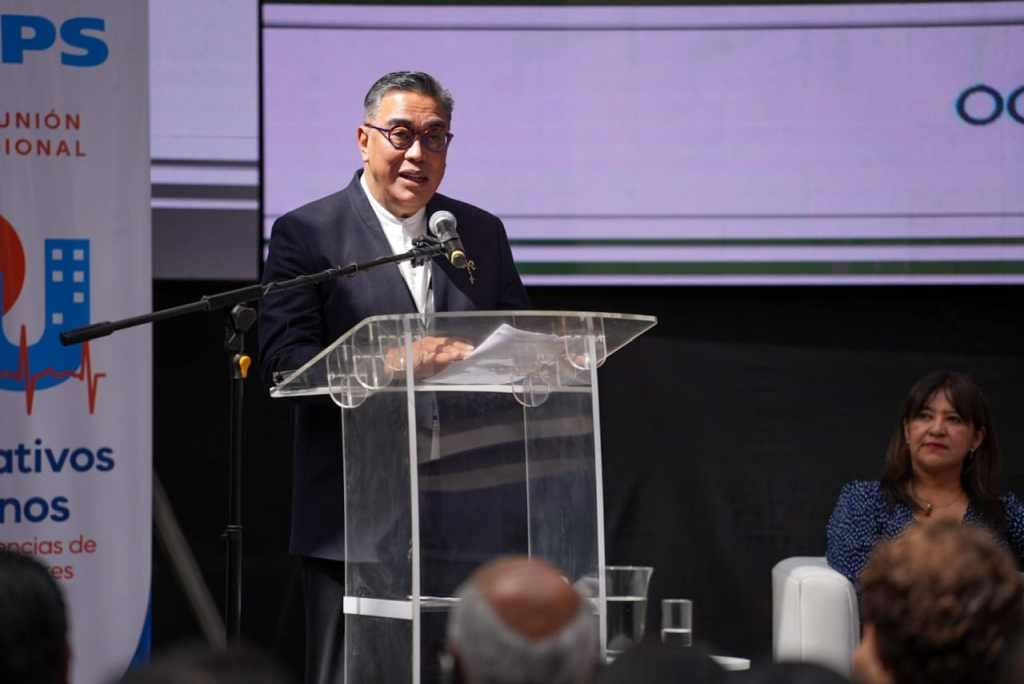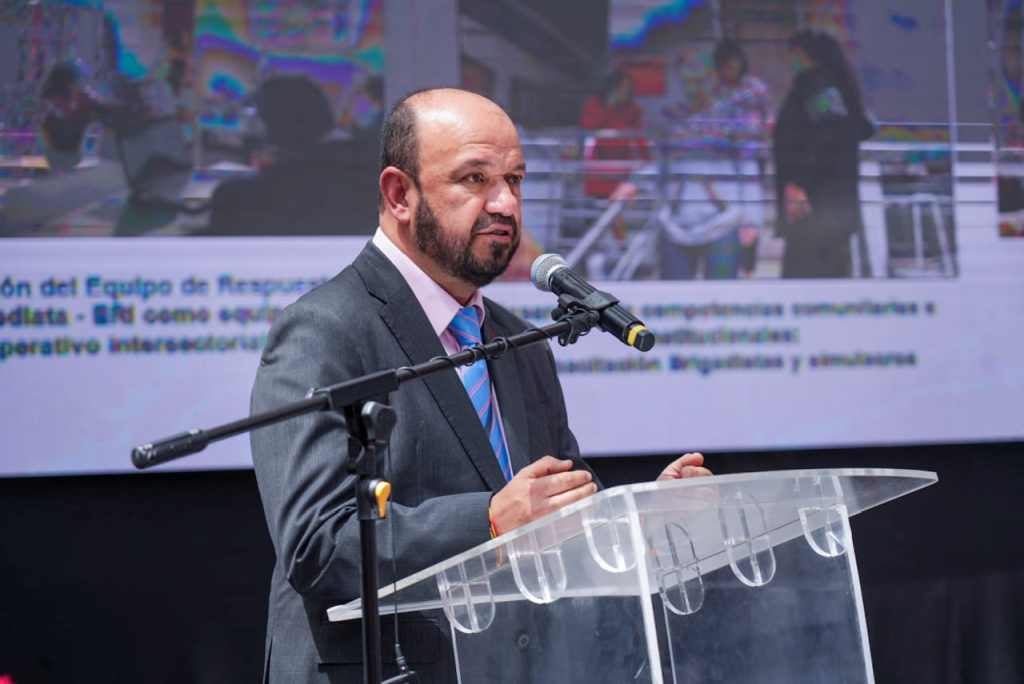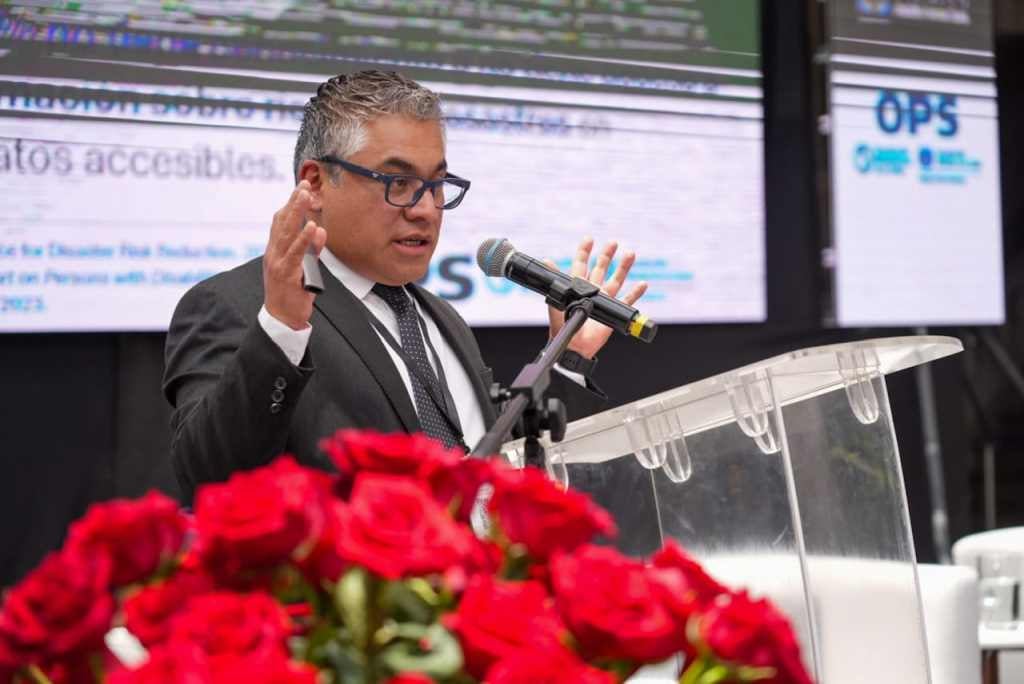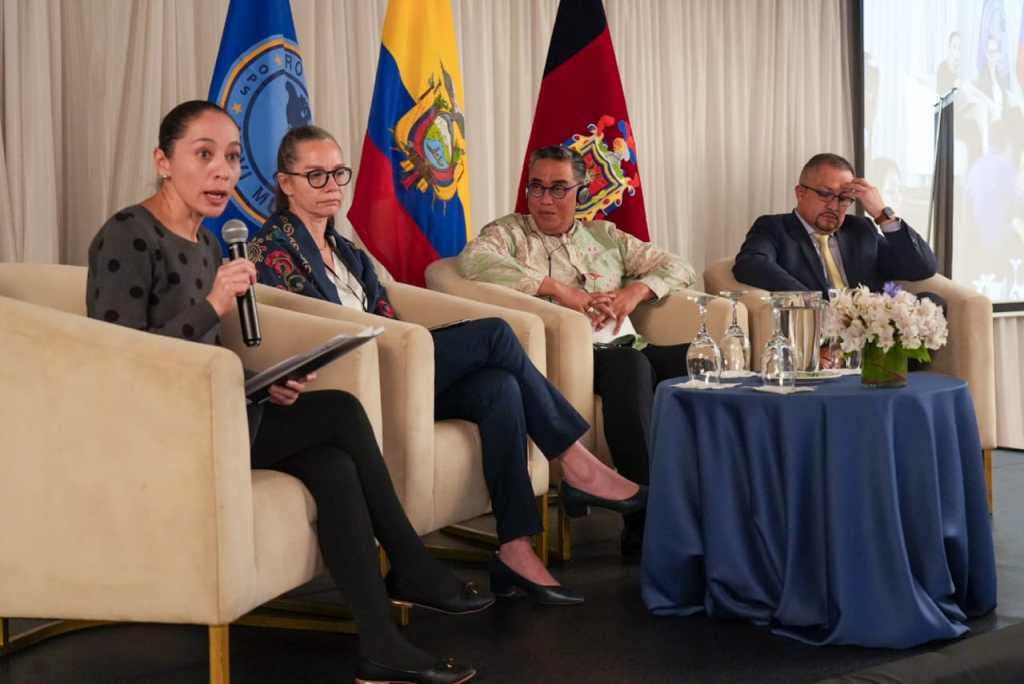
Quito, 18 October, 2024.- The "First Interregional Meeting on Strengthening Preparedness for Health Emergencies and Disasters in Cities and Urban Settings," held in Quito, Ecuador, from October 15 to 17, 2024, highlighted several key topics: the importance of governance and data management, community participation in decision-making processes, the need to ensure the continuity of health services during adverse events, and the accessibility of health infrastructure and communication in emergency and disaster situations.
During the opening event, Sonia Quezada, representative of the Pan American Health Organization / World Health Organization (PAHO/WHO) in Ecuador, emphasized that governments, organizations, communities, and individuals must work in coordination and carry out preparedness actions to build the necessary capacities to manage all types of emergencies and disasters, to achieve an organized transition from response actions to sustained recovery.
“This meeting will serve to exchange experiences and lessons learned, but fundamentally it is an opportunity to consolidate a regional strategy aimed at reducing vulnerabilities in urban environments with the participation of the public and private sectors, as well as the integration of the community as a key actor,” Dr. Quezada added.
Moreover, Ciro Ugarte, PAHO Health Emergencies department director, said that PAHO is working to strengthen the collective capacity of different organizations to face health hazards through a comprehensive strategy that brings together ministries of health, local governments, and international partners.
Also, during the opening session, Pabel Muñoz, Mayor of Quito, noted that the COVID-19 pandemic showed the importance of public investment in preparedness. Natalia Aumala, Undersecretary of Surveillance, Prevention and Control of the Ministry of Public Health (MSP) of Ecuador, indicated that community participation is key in responding to emergencies and disasters in urban settings.
Ludy Suryantoro, Chief of the Multisectoral Engagement for Health Security Unit of the World Health Organization, highlighted that the conclusions of the Interregional Meeting in Quito will be a contribution from the Americas to the world.
During the three-day meeting there was an extensive agenda, in which more than a hundred people participated in person and virtually. The main topics discussed were: Strategic risk assessment of health emergencies and disasters in urban environments, coordination mechanisms for health emergencies and disasters response in cities and urban environments, and risk communication strategies for health emergencies and disasters in cities.
The first day of the meeting began with a presentation of the progress, main barriers, and areas of opportunity faced by the cities of Quito, Bogota and Cali in the implementation of the Urban Preparedness initiative. It was also analyzed how hospitals that are already resilient to health emergencies and disasters can strengthen disaster risk reduction.
Some of the main discussions regarding climate change included the direct and indirect impacts of the climate crisis on urban populations' health, how rising sea levels affect health infrastructure, and the opportunity presented by The New Urban Agenda (UN Habitat) to integrate health into sustainability strategies.
Inclusion was the main topic of the second day. During the sessions, the participation and care of people with disabilities and the elderly were discussed, as well as accessibility and other key aspects for emergency preparedness with and inclusive lens.
Germán Camacho, Mayor of Paipa (Colombia), shared his experience in building the regional platform of local government organizations - which includes cities, municipalities, mayors' offices, cantons, communes, and commonwealths - to manage, among other things, urban challenges related to risks and health threats brought by climate change.
Alex Pérez, official from the City of Quito, presented several key aspects of disabled accessibility in cities and explained the reasons why inclusion in planning should be promoted for emergency response in urban environments, highlighting the challenges and solutions at the local level.
To this regard, Juan Carlos Sanchez, PAHO/WHO regional office international consultant, highlighted the importance of the inclusion and participation of people with disabilities in the implementation of tools such as INGRID-H: Inclusion for Disaster Risk Management in Hospitals.
The third and last day closed with the presentation of the first technical proposals and strategies that could outline the next actions of the Urban Preparedness initiative.
The closing session highlighted the appreciation for the participation of representatives from local governments, cooperation agencies, and civil society organizations. These contributions will be the basis for discussion at the next local and regional urban preparedness meetings so that the Americas proposals can serve as a future guide for any city that joins the initiative.
Additional data:
Urbanization in the Americas region is steadily growing. According to the United Nations Statistics Division, more than 293 million people live in the 86 most populated metropolitan areas in Latin America.
Public health challenges are increased by rapid urbanization, settlements in risk areas, and deep inequalities, all of which increase the vulnerability of people in cities. City governments face great challenges such as managing services for large populations, limited infrastructure, and guaranteeing human mobility.
In urban environments, natural hazards, climate change, and human-created risks, have a strong impact and make emergency management more complex.
The COVID - 19 pandemic highlighted the susceptibility of cities to the rapid spread of diseases, making it urgent to improve preparedness and response to urban health emergencies in Latin America.

